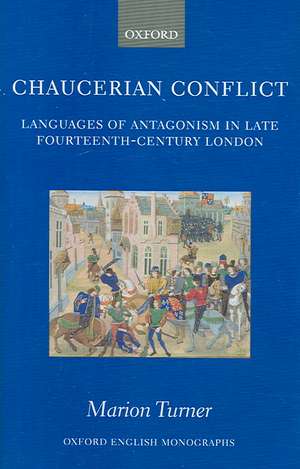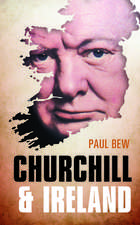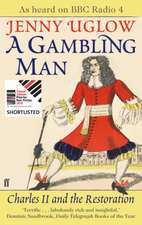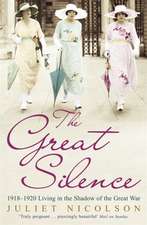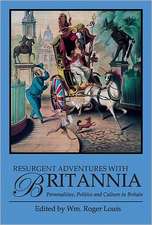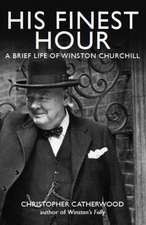Chaucerian Conflict: Languages of Antagonism in Late Fourteenth-Century London: Oxford English Monographs
Autor Marion Turneren Limba Engleză Hardback – 30 noi 2006
Din seria Oxford English Monographs
- 12%
 Preț: 492.54 lei
Preț: 492.54 lei - 28%
 Preț: 472.45 lei
Preț: 472.45 lei - 28%
 Preț: 487.35 lei
Preț: 487.35 lei - 23%
 Preț: 473.01 lei
Preț: 473.01 lei - 24%
 Preț: 498.33 lei
Preț: 498.33 lei - 21%
 Preț: 528.16 lei
Preț: 528.16 lei - 28%
 Preț: 497.29 lei
Preț: 497.29 lei - 28%
 Preț: 406.14 lei
Preț: 406.14 lei - 16%
 Preț: 473.94 lei
Preț: 473.94 lei - 28%
 Preț: 473.47 lei
Preț: 473.47 lei - 26%
 Preț: 527.79 lei
Preț: 527.79 lei - 22%
 Preț: 497.63 lei
Preț: 497.63 lei - 30%
 Preț: 516.27 lei
Preț: 516.27 lei - 28%
 Preț: 437.84 lei
Preț: 437.84 lei - 26%
 Preț: 515.71 lei
Preț: 515.71 lei - 28%
 Preț: 498.06 lei
Preț: 498.06 lei - 12%
 Preț: 494.84 lei
Preț: 494.84 lei - 27%
 Preț: 407.74 lei
Preț: 407.74 lei - 28%
 Preț: 472.09 lei
Preț: 472.09 lei - 16%
 Preț: 472.24 lei
Preț: 472.24 lei - 28%
 Preț: 473.16 lei
Preț: 473.16 lei - 25%
 Preț: 490.28 lei
Preț: 490.28 lei - 25%
 Preț: 521.94 lei
Preț: 521.94 lei - 30%
 Preț: 505.56 lei
Preț: 505.56 lei - 30%
 Preț: 673.12 lei
Preț: 673.12 lei - 34%
 Preț: 773.65 lei
Preț: 773.65 lei - 23%
 Preț: 329.18 lei
Preț: 329.18 lei - 34%
 Preț: 800.49 lei
Preț: 800.49 lei - 34%
 Preț: 1078.49 lei
Preț: 1078.49 lei - 34%
 Preț: 1034.87 lei
Preț: 1034.87 lei - 34%
 Preț: 1167.40 lei
Preț: 1167.40 lei - 34%
 Preț: 1019.76 lei
Preț: 1019.76 lei - 31%
 Preț: 351.12 lei
Preț: 351.12 lei - 20%
 Preț: 230.13 lei
Preț: 230.13 lei - 34%
 Preț: 979.50 lei
Preț: 979.50 lei - 34%
 Preț: 1181.23 lei
Preț: 1181.23 lei - 34%
 Preț: 1035.56 lei
Preț: 1035.56 lei - 20%
 Preț: 272.11 lei
Preț: 272.11 lei - 34%
 Preț: 1035.28 lei
Preț: 1035.28 lei - 34%
 Preț: 1080.62 lei
Preț: 1080.62 lei - 46%
 Preț: 466.34 lei
Preț: 466.34 lei - 34%
 Preț: 991.10 lei
Preț: 991.10 lei - 34%
 Preț: 874.40 lei
Preț: 874.40 lei - 34%
 Preț: 859.88 lei
Preț: 859.88 lei - 34%
 Preț: 1108.02 lei
Preț: 1108.02 lei - 34%
 Preț: 859.05 lei
Preț: 859.05 lei - 34%
 Preț: 1006.88 lei
Preț: 1006.88 lei - 34%
 Preț: 1196.96 lei
Preț: 1196.96 lei - 31%
 Preț: 421.29 lei
Preț: 421.29 lei
Preț: 698.29 lei
Preț vechi: 1005.54 lei
-31% Nou
Puncte Express: 1047
Preț estimativ în valută:
133.62€ • 139.86$ • 111.21£
133.62€ • 139.86$ • 111.21£
Carte tipărită la comandă
Livrare economică 19-25 martie
Preluare comenzi: 021 569.72.76
Specificații
ISBN-13: 9780199207893
ISBN-10: 0199207895
Pagini: 224
Dimensiuni: 144 x 223 x 20 mm
Greutate: 0.39 kg
Editura: OUP OXFORD
Colecția OUP Oxford
Seria Oxford English Monographs
Locul publicării:Oxford, United Kingdom
ISBN-10: 0199207895
Pagini: 224
Dimensiuni: 144 x 223 x 20 mm
Greutate: 0.39 kg
Editura: OUP OXFORD
Colecția OUP Oxford
Seria Oxford English Monographs
Locul publicării:Oxford, United Kingdom
Recenzii
It is refreshing to read a work of literary criticism so enmeshed in primary sources and so able to construct its own understanding of a historical moment. Turner is a sensitive reader of texts, and her vision of Ricardian intertextuality is mapped out with precision and care... [Her conclusion] is one with which all Chaucerians must now grapple
Turner's readings of Chaucer's works are informed and perceptive, increasingly dark in the forms of antagonism, loss and fragmentation which they uncover, and carefully modulated to lead the reader towards Lacanian and post- Lacanian psychoanalytical interpretations...These readings are always interesting and often compelling: Turner writes with unusual lucidity and handles her arguments deftly on both a small and large scale.
Turner's pioneeing and thoughtful study argues provocatively that Chaucer engages antagonism without any hope for final resolution or for social amelioration, thus at once reflecting and producing a world divided against itself... What distinguishes Turner's work is its acute apprehension of language and the ways in which it all but defines discourse, its attentiveness to narrative detail and to social implication, and its willingness, in addressing Chaucerian intention, both to engage and to interpret non-Chaucerian writers as varied as John Clanvowe, the Erkenwald-poet, John Gower, and Thomas Usk.
This is a valuable and stimulating book and will appeal widely to readers of this most fascinating period in English literary history. The argument is clearly and forthrightly expressed and well-structured. The great strength of the book is to put texts side-by-side that are not often examined together, the Mercers' Petition with the House of Fame, for example. The results are sometimes startling and always interesting.
Turner's readings of Chaucer's works are informed and perceptive, increasingly dark in the forms of antagonism, loss and fragmentation which they uncover, and carefully modulated to lead the reader towards Lacanian and post- Lacanian psychoanalytical interpretations...These readings are always interesting and often compelling: Turner writes with unusual lucidity and handles her arguments deftly on both a small and large scale.
Turner's pioneeing and thoughtful study argues provocatively that Chaucer engages antagonism without any hope for final resolution or for social amelioration, thus at once reflecting and producing a world divided against itself... What distinguishes Turner's work is its acute apprehension of language and the ways in which it all but defines discourse, its attentiveness to narrative detail and to social implication, and its willingness, in addressing Chaucerian intention, both to engage and to interpret non-Chaucerian writers as varied as John Clanvowe, the Erkenwald-poet, John Gower, and Thomas Usk.
This is a valuable and stimulating book and will appeal widely to readers of this most fascinating period in English literary history. The argument is clearly and forthrightly expressed and well-structured. The great strength of the book is to put texts side-by-side that are not often examined together, the Mercers' Petition with the House of Fame, for example. The results are sometimes startling and always interesting.
Notă biografică
Marion Turner gained her doctorate from Oxford in 2002. She was then a Fellow of Magdalen College, Oxford, and is now a Lecturer in Medieval Literatures at King's College London. She has published several articles on Chaucer and his contemporaries, and has also appeared several times on television and radio discussing medieval literature and history.
